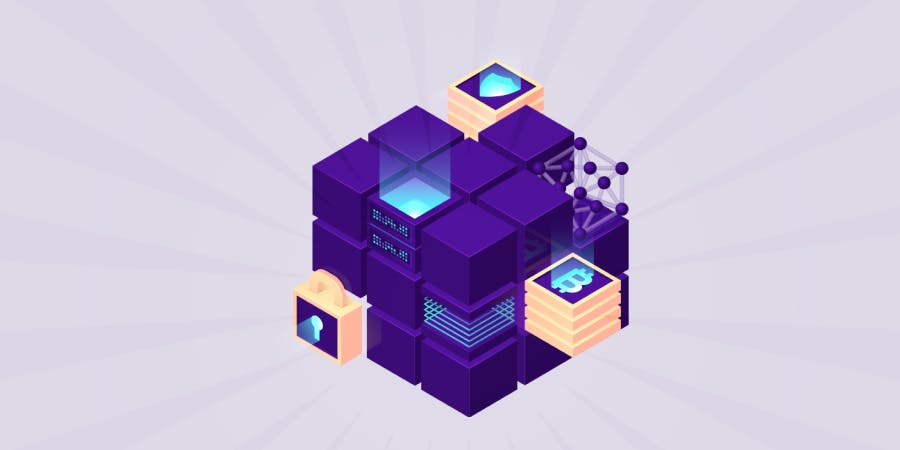Applications of Blockchain Technology and Cryptocurrencies Across Sectors
Cryptocurrencies have ushered in a revolutionary era, transforming the global landscape by offering seamless transactions, enhanced security, and accessibility. Rooted in blockchain technology, these digital currencies have garnered immense popularity for their transactional capabilities, but their potential extends far beyond that. In this discussion, we will explore the fascinating realm of blockchain technology, its relationship with cryptocurrencies, and its diverse applications across various sectors.
What is Blockchain Technology?
In the simplest form, the blockchain is a decentralised digital ledger that records transactions and entries across many computers. Its data cannot be altered, and it functions to ensure security and transparency.
Blockchain and Cryptocurrency
Blockchain technology is most famous for its application in cryptocurrencies. Cryptocurrencies or digital assets like bitcoin and ethereum utilise cryptography to ensure the security of their transactions. By harnessing blockchain technology, cryptocurrencies gain vital attributes such as transparency, immutability, and decentralisation.
How? Transactions in a cryptocurrency blockchain are recorded as currency transfers between blockchain addresses. The blockchain network must verify these transactions to establish authenticity, and the decentralised nature of cryptocurrency blockchains ensures resistance to control or manipulation by any single entity.
This transparency enhances cryptocurrency security, effectively preventing fraud and corruption, as all network participants can view transaction data. The cryptographic features of blockchain technology guarantee robust security, while its traceability bolsters its integrity. By automating transactions, blockchain significantly boosts efficiency and speed, a particularly advantageous attribute for financial services. Furthermore, it reduces costs by eliminating the need for intermediaries in various sectors.
Applications of Blockchain Technology in Different Sectors
Beyond serving as the bedrock for cryptocurrencies, blockchain technology showcases an array of use cases that extend far beyond financial transactions. Today, we witness the integration of blockchain-based cryptocurrencies across diverse industries worldwide. Here are some ways blockchain technology is being applied across the world:
- Healthcare
Blockchain technology offers promising solutions to the health industry. By leveraging its decentralised nature, blockchain introduces a new model for health information exchanges, streamlining the efficiency and safety of electronic medical records. For instance, MedRec, built on the Ethereum blockchain, enables secure access to patients' medical records by authorised providers, resolving the challenge of scattered patient data. MediBloc is also a dedicated healthcare-based blockchain system that ensures the secure storage of patients’ medical information, further advancing the potential of blockchain in transforming the healthcare industry.
Additionally, Cryptocurrencies play a role in healthcare by enabling secure and transparent transactions for medical services and research. For instance, some healthcare providers accept cryptocurrencies as a form of payment, offering patients more options for settling medical bills. - Agriculture
In agriculture, blockchain technology plays a pivotal role in ensuring the authenticity and quality of food products, streamlining supply chain management, manufacturing and production and much more. IBM's Food Trust blockchain initiative is a prime example of harnessing this technology to facilitate traceability and transparency within the food supply chain, instilling consumer confidence and fostering a more resilient and trustworthy food system.
In agriculture, cryptocurrencies can be used for various purposes, such as incentivising farmers for sustainable practices through token rewards or facilitating cross-border transactions for agricultural products, reducing the complexities and costs associated with traditional banking systems. - Banking and Finance
In the banking sector, blockchain technology makes transactions faster, more secure, and cheaper. For example, Ethereum (ETH) is used for various financial applications in Decentralised Finance (DeFi) and managing organisations with DAOs. Another example is XRP by Ripple Labs which aims to enable quick and low-cost global financial transactions.
Cryptocurrencies like Bitcoin and Ethereum are the primary assets powering DeFi platforms, enabling users to lend, borrow, and trade without the need for traditional financial intermediaries. Additionally, various cryptocurrencies offer alternative means for international money transfers, reducing remittance costs and processing times. - Governance
Blockchain technology presents a promising solution for governance, particularly in elections, by providing robust security that reduces the risk of fraud and enhances transparency. A noteworthy initiative in this space is the Agora project, which aims to develop a blockchain-based digital voting solution. Additionally, countries' central banks are exploring the creation of Central Bank Digital Currencies (CBDCs) to bolster their financial frameworks and enhance their economies.
Blockchain-based voting systems may utilise cryptocurrencies to verify voters' identities and ensure that each voter can cast only one vote, enhancing the integrity of the election process. - Education
Blockchain technology has significantly impacted education, providing a secure, efficient, and transparent system. Blockchain enables decentralised and verifiable academic credentials, streamlines verification processes, and simplifies student record management for seamless transfers between institutions. Blockchain also fosters research collaboration through secure data-sharing platforms. A noteworthy example is Blockcerts, an education blockchain platform that uses blockchain technology to issue, view, and verify digital credentials securely and tamper-proof.
Cryptocurrencies can be used to incentivise students and educators through reward mechanisms. Some educational institutions may also accept cryptocurrencies for tuition and other fees, providing greater financial flexibility for international students.
The Future of Blockchain in Cryptocurrency
Given its potential and versatility, it's clear why blockchain technology is considered one of the most important innovations in our digital age. The future of blockchain in cryptocurrency looks promising, with the potential for greater adoption and integration of cryptocurrencies in daily life and commerce. Whether it's making transactions more secure, voting more transparent, or healthcare records more accessible, blockchain is paving the way towards a more transparent and secure future.
Disclaimer: This article is meant to provide general guidance and understanding of cryptocurrency and the Blockchain network. It’s not an exhaustive list and should not be taken as financial advice. Yellow Card Academy is not responsible for your investment decisions.


Crypto scoop
Sign up for our weekly newsletter
Stay informed with the latest updates to buy, sell, and store your crypto on the go.

Download the Yellow Card app
Start trading crypto with ease
Get the Yellow Card app to buy, sell, and store your crypto on the go.


